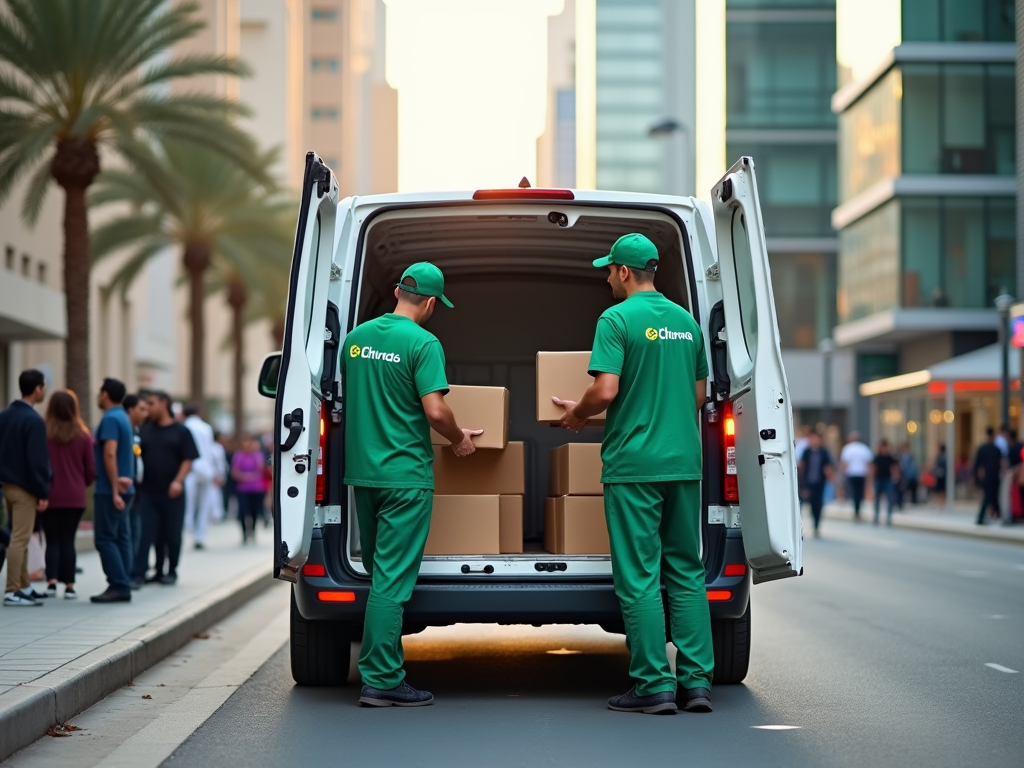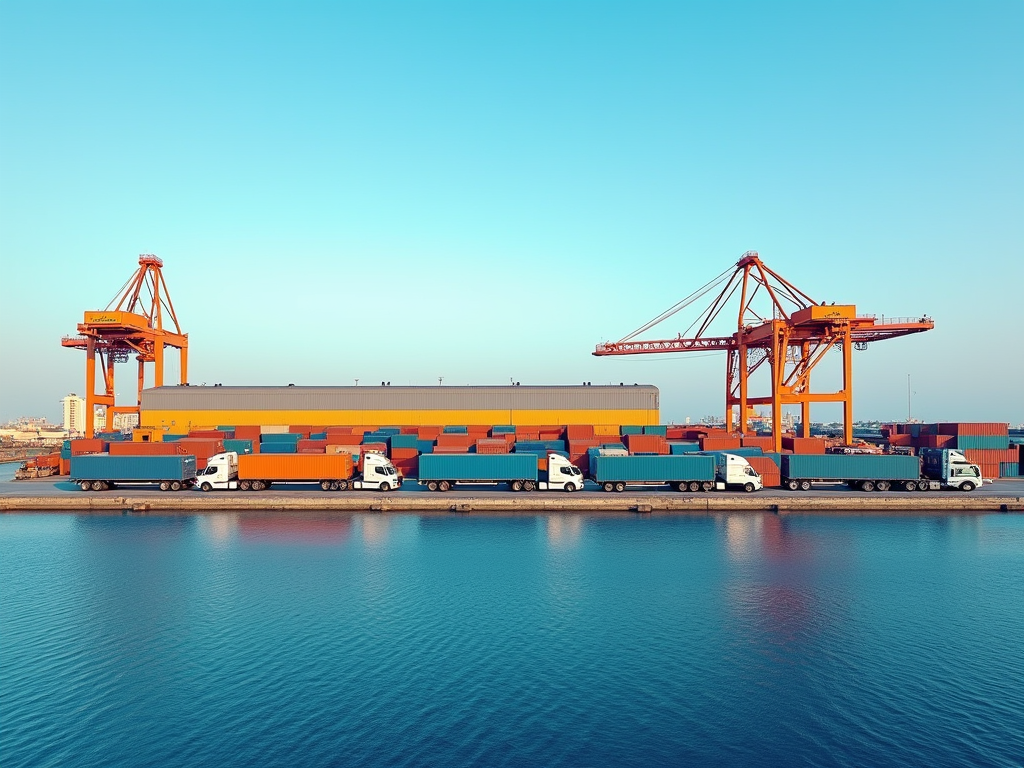The logistics industry in Dubai presents a wealth of business opportunities thanks to the emirate’s strategic location, world-class infrastructure, and supportive government policies. As a key trade hub connecting East and West, Dubai is an ideal locale for businesses looking to tap into global supply chains. This article will delve into the various aspects of the logistics industry in Dubai, highlighting key opportunities, challenges, and future trends that are shaping this dynamic sector.
The Importance of Dubai in Global Logistics

Dubai’s logistics industry is a crucial element of the global trade ecosystem, acting as a gateway for goods moving between continents. Several factors contribute to its significance:
- Strategic Location: Positioned between Europe, Asia, and Africa, Dubai offers unparalleled access to key international markets.
- World-Class Infrastructure: With an advanced network of ports, airports, and seamless transport links, Dubai is equipped to handle logistics at all levels.
- Business-Friendly Environment: The UAE government has implemented policies that foster ease of doing business, attracting investments from logistics companies worldwide.
- Free Zones: Dubai boasts numerous free zones that provide tax exemptions, full ownership rights, and simplified customs procedures.
- Growing E-commerce Sector: With the rise of online shopping, the demand for logistics services is surging, particularly in last-mile delivery.
Key Business Opportunities in Dubai’s Logistics Sector

Dubai’s logistics industry is ripe with various business opportunities. Here are some primary areas where entrepreneurs can thrive:
- Warehousing and Distribution: The growing demand for efficient storage solutions drives opportunities in the warehousing sector. Companies can establish facilities offering modern storage solutions equipped with technology like RFID for inventory management.
- Last-Mile Delivery Services: As e-commerce continues to boom, providing efficient last-mile logistics solutions is essential. Entrepreneurs can capitalize on this by offering specialized delivery services.
- Cold Chain Logistics: Businesses handling perishable goods require temperature-controlled environments. Establishing a cold chain logistics service can fill this niche demand.
- Freight Forwarding: Companies looking to manage import and export operations effectively can benefit from freight forwarding and customs brokerage services.
- Logistics Technology Solutions: The integration of technology in logistics such as automation and IoT paves the way for tech startups to provide innovative solutions that enhance operational efficiencies.
Challenges Facing the Logistics Industry in Dubai
While the logistics industry in Dubai is thriving, it is not without its challenges. Business owners must navigate several obstacles to be successful:
First and foremost, competition is fierce in this sector, with numerous established players vying for market share. This necessitates innovation and the need for businesses to differentiate themselves. Additionally, regulatory challenges can arise, particularly as laws evolve to keep pace with industry changes. Safeguarding against supply chain disruptions, particularly in times of economic uncertainty, is also critical. Moreover, recruitment and retention of skilled labor can be challenging due to rapid industry growth and the demand for highly specialized skill sets.
The future of the logistics industry in Dubai looks promising, driven by ongoing investments in infrastructure and technological advancements. As Dubai aims to position itself as a global smart logistics hub, we can expect to see the following trends:
- Automation: The increased use of robotics and AI in warehouses for better inventory management and efficiency.
- Sustainability Initiatives: A shift toward environmentally sustainable logistics solutions as businesses adopt practices to reduce carbon footprints.
- Digital Transformation: Enhanced use of data analytics, blockchain, and cloud-based platforms for improved transparency and efficiency in supply chain operations.
- Investment in Infrastructure: Continuous development of ports, roads, and airfreight facilities to enhance capacity and connectivity.
- Focus on E-commerce Logistics: Solutions tailored specifically for e-commerce needs will be in high demand, especially for technology-driven last-mile delivery solutions.
Conclusion
Dubai’s logistics industry is a vibrant and ever-evolving sector, packed with opportunities for innovation and growth. Entrepreneurs looking to explore this landscape can benefit from the emirate’s strategic advantages, including its ideal location, cutting-edge infrastructure, and supportive regulatory environment. While challenges do exist, the potential for success in logistics is high, particularly for those who embrace technology and sustainability. As global trade continues to expand, Dubai will undoubtedly play a pivotal role in shaping the future of logistics, making it an exciting frontier for aspiring businesses.
Frequently Asked Questions
1. What makes Dubai a key logistics hub?
Dubai’s strategic geographical location, advanced infrastructure, and business-friendly policies make it a vital nexus for global logistics and trade.
2. What types of logistics services are in demand in Dubai?
Services such as warehousing, last-mile delivery, cold chain logistics, and freight forwarding are in high demand due to the growing e-commerce sector.
3. Are there special economic zones for logistics in Dubai?
Yes, Dubai has several free zones that offer benefits like tax exemptions and full ownership to logistics companies, making it easier to operate in the emirate.
4. What challenges do businesses face in Dubai’s logistics industry?
Challenges include heightened competition, regulatory changes, recruitment issues, and the need to manage supply chain disruptions effectively.
5. How is technology impacting the logistics industry in Dubai?
Technology is revolutionizing the industry through automation, data analytics, and digital solutions that enhance operational efficiency and transparency.



